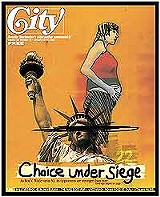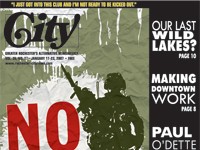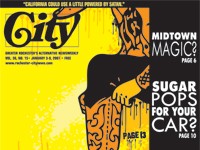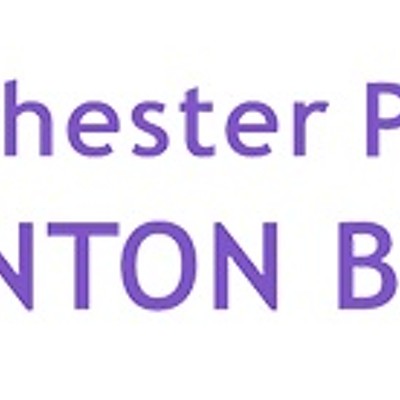[
{
"name": "500x250 Ad",
"insertPoint": "5",
"component": "15667920",
"parentWrapperClass": "",
"requiredCountToDisplay": "1"
}
]
It's tempting to cram the many-sided Roe v. Wade controversy into a 30-year frame, 1973 to the present.
But in one sense the struggle over abortion rights is much older than that --- back to the roots of women's rights in general --- while in another sense it's practically brand new.
The new component has arrived throughtechnological change: It's "medical abortion," or as anti-abortionists call it, "chemical."
It's often thought that this new procedure, popularly known as "the morning-after pill," will revolutionize access to abortion and thus cloud the legal picture.
The questions proliferate.
What if abortion is criminalized or severely restricted (the latter is already happening big-time, of course)?
Will pharmaceuticals like mifepristone (formerly called RU-486) allow women to obtain --- indeed, to perform --- abortions more "informally"?
Will the new techniques save women from a repeat of the proverbial coat-hanger, back-alley era?
Steven Aronson, director of external affairs for Planned Parenthood of Rochester/Syracuse, doesn't anticipate that medical abortion will have a big effect on any front. "I think physicians are looking at it and adopting it slowly," he says. "What it comes down to is, a woman walking into Planned Parenthood has one or more [surgical and medical/pharmaceutical] options."
Another local Planned Parenthood spokesperson, Shelley Page, fills in some relevant figures. In the first six months of 2001, she says, 94 percent of abortions in the US were surgical. Only 4.4 percent were done with mifepristone, and the remainder were done with some other pharmaceutical, she notes.
Pharmaceutical methods are not as easy as some people assume. Currently, says a fact-sheet from NARAL Pro-Choice America, the FDA regimen for taking mifepristone "requires several visits to a clinic or doctor's office." (The drug also "expands women's options" and may hold promise for treating breast cancer and other diseases, says the fact-sheet.) Compared to this, surgical abortion may actually be simpler.
But there are other considerations. For example, Dr. Eric Schaff, a local physician who's been in the forefront of clinical practice with mifepristone, told USA Today that the medical world has a built-in preference for non-surgical over surgical options. The sooner a woman comes in for an abortion, he said, the safer it is. "Medical abortion," he concluded, "is inherently very, very safe because it is very, very early."
The anti's look at it another way. "Chemical abortion" (the term may be used to evoke frightening things like "chemical warfare," says Steven Aronson) is just as bad as any form, they contend.
"Rather than relying on an abortionist to kill her unborn child, the chemical abortion requires the mother to end her pregnancy by her own hand," says a fact-sheet from the conservative group Focus on the Family. The language indicates the group, and the political movement it leads, won't view medical abortion in a separate moral frame.
The older angle here is feminist history --- in this case, how 19th-century American feminists viewed abortion, and how their statements are used or abused.
It's an angle that's strongly linked to this geographical area, of course. Rochester is central historically to the modern American feminist movement, beginning even before the 1848 women's rights convention in Seneca Falls. And the region was home to Susan B. Anthony, Elizabeth Cady Stanton, Amelia Bloomer, and other activists of the 19th and early 20th centuries.
And the local terrain is still contested.
"The early feminist position was in support of the unborn child," says Jessica Shanahan, Rochester-based president of Feminists for Life of New York --- part of a national organization that favors overturning Roe v. Wade and outlawing abortion. Shanahan offers Seneca Falls' leading light as exhibit A: "Elizabeth Cady Stanton had seven children," she says. Moreover, she says, Stanton was so proud of this that she "would raise a flag when her child was born."
For background, Shanahan suggests the national Feminists for Life website (www.feministsforlife.org), which has an archive of anti-abortion quotes from Stanton and some of her contemporaries.
One of Stanton's quotes --- drawn from The Revolution, a magazine that Susan B. Anthony published here in the late 1860s --- makes a twofold point about abortion/infanticide directly: "There must be a remedy even for such a crying evil as this. But where shall it be found, at least where begin, if not in the complete enfranchisement and elevation of women?"
Matilda Gage is quoted, too. Her words, also drawn from The Revolution, are rendered thus: "[This] subject lies deeper down in woman's wrongs that any other... I hesitate not to assert that most of [the responsibility for] this crime lies at the door of the male sex."
Surface clarity notwithstanding, opinion is divided over these early feminist views of abortion.
Feminists for Life's Shanahan concedes that Anthony, Stanton, and their circle put most of their effort into other things. "[Abortion] was not the issue of the day," she says. The big one, she says, was women's suffrage.
In any case, it's often tough for the modern reader to figure out what early feminists meant.
For example, many references in old feminist documents are to "ante-natal infanticide," and so forth, says feminist historian Janet Farrell Brodie, author of Contraception and Abortion in 19th Century America and professor at California's Claremont Graduate University.
According to Brodie, people of the time had quite a different concept of fetal development than we moderns do. Ending a pregnancy "before movement [in utero] could be felt" was not considered abortion, she says.
Indeed, the Victorians generally thought that "quickening" --- the point several months into a pregnancy when fetal life was said to begin --- was the crucial milestone.
In a 1997 Atlantic Monthly article, "Abortion in American History," feminist and rights advocate Katha Pollitt explored this realm of thought. At one point, Pollitt focused on the medical profession's early role. In the late 19th century, she says, the American Medical Association waged a "crusade" against abortion, which had been legal and openly advertised in mid-century.
The crusade, says Pollitt, "was partly a professional move to establish the supremacy of 'regular' physicians over midwives and homeopaths." But it was also "connected to nativism, anti-Catholicism, and, as it is today, anti-feminism."
Moreover, today's gentle reader can't ignore the historical events that inspired many early-feminist declarations.
Consider a headline-grabber from 1868 --- just as The Revolution was in its short heyday.
The feminist discourse turned molten that year over a young unmarried domestic servant named Hester Vaughan. A recent immigrant to Pennsylvania from England, Vaughan was sexually involved with --- or abused or raped by --- her employer.
A book, titled 'The Revolution' in Words (Lana Rakow and Cheris Kramarae, editors), contains selections from the magazine that speak to Vaughan's predicament. Rakow and Kramarae tell how the young woman became pregnant and was summarily fired. Then things got worse: Vaughan sought refuge in "an unheated room" where she fell ill and gave birth alone. The newborn was soon dead. In no time, Vaughan was charged with infanticide and handed a death sentence.
The feminist community sprang into action. Elizabeth Cady Stanton traveled to Pennsylvania to lobby the governor. With this help, plus the efforts of the Working Women's Association, Vaughan won a pardon and returned to England. Rakow and Kramarae argue that Vaughan's advocates believed "abortion, infanticide, and prostitution were not women's crimes but the result of men's crimes against women..."
This story pulses through the citations, too.
Take the Matilda Gage quote given above. In 'The Revolution' in Words, the quote appears in a fuller form than on the Feminists for Life website: "'Child Murder'... [touches] a subject which lies deeper down into woman's wrongs than any other. This is the denial of the right to herself. In no historic age of the world has woman yet had that... [N]owhere has the marital union of the sexes been one in which woman has had control over her body.
"Enforced motherhood is a crime against the body of the mother and the soul of the child...
"I hesitate not to assert that most of this crime of 'child murder,' 'abortion,' 'infanticide,' lies at the door of the male sex."
Certainly the phrases "enforced motherhood" and "control over her body" resonate as well as Gage's judgment that abortion is wrong.
Brodie doesn't try to contradict the view that the early feminists opposed abortion. It's there in black and white, after all.
But that opposition was ambivalent, at the very least.
Another example: Here's the Elizabeth Cady Stanton quote again, this time with full context from 'The Revolution' in Words (where, oddly, it's attributed only to the magazine, not to Stanton by name):
"There must be a remedy even for such a crying evil as this. But where shall it be found, at least where begin, if not in the complete enfranchisement and elevation of women? Forced maternity, not out of legal marriage but within it, the complete power of the stronger over the weaker sex, must lie at the bottom of a vast proportion of such revolting outrages against the laws of nature and our common humanity."
Read more about Roe v. Wade in our Cover Story sectionSpeaking of Roe V. Wade, abortion
-

Abortion conflict flares up in Batavia
Feb 18, 2019 -
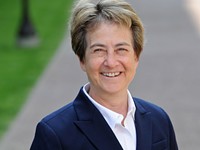
Advocates, lawmakers push for abortion law vote
Aug 6, 2018 -
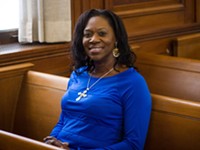
The stained-glass ceiling
Feb 8, 2017 - More »
Latest in Featured story
More by Jack Bradigan Spula
-

The state of Main
Apr 14, 2004 -
School improvement: the price is wrought
Apr 7, 2004 -
Hour of power
Mar 31, 2004 - More »
